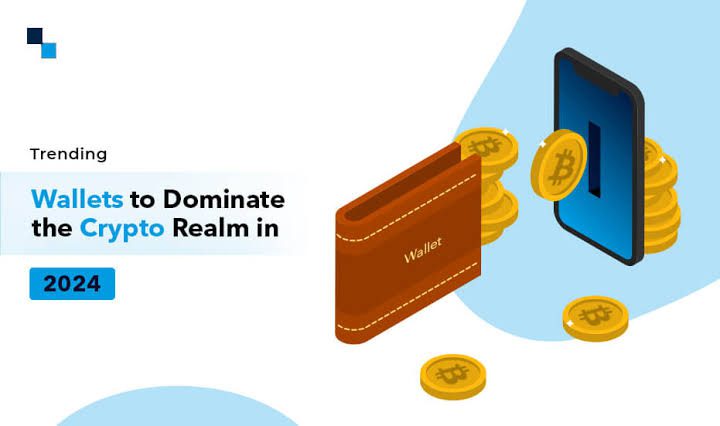Tips On Choosing A Crypto Wallet In 2024

The emergence of digital currencies has revolutionized the methods of exchanging and trading money, leading to the establishment of crypto wallets. There are now new wallet options on the market that come with various features. This article provides guidance on selecting the appropriate wallet.
Grasping The Idea Of Crypto Wallets
Crypto wallets are virtual repository systems for virtual coins and tokens, ensuring secure transactions without intermediaries. They operate on various websites for peer-to-peer transactions, making them faster and cheaper.
Each wallet has a unique address and security phrases, making hacking difficult. Crypto transfers use encryption processes like smart contracts and private key cryptography, and some websites use a scannable QR code for seamless payments.
Hot And Cold Wallets
Hot and cold wallets have similar functionalities but differ in their location and access methods.
Hot wallets are operated over the internet and can be websites or mobile applications that enable instant transactions using 2FA. They are more flexible and easier to operate but carry data exposure risks and privacy breaches.
On the other hand, cold wallets are stored in physical devices like hard drives or paper, ensuring no cloud storage. These wallets are highly safe as they require ownership or access to the certificate wallet to access personal and crypto wallet information.
Managing Your Wallet
To guarantee the safety of your money, employ a sturdy and secure digital currency wallet. Make sure to store your wallet information in a secure location and ensure that only you have access to it.
Activate additional security layers like 2FA or fingerprint scan on mobile wallets, or use multi-sig wallets for multiple users. Connect your wallet to reliable platforms and disconnect it after transacting on a specific website. This ensures your funds remain secure and accessible for your business.
Blockchain wallets hold virtual money used for purchasing, selling, and transferring cryptocurrency. There are two varieties of wallets: hot and cold. While hot wallets exist in the virtual space, cold wallets are physical devices.
Payments require validation and seed phrases, and it’s crucial to check the provider’s protection measures to prevent compromising personal and virtual wallet details.
Hot wallets are operated over the internet and can be websites or mobile applications that enable instant transactions using 2FA. They are more flexible and easier to operate but carry data exposure risks and privacy breaches.
On the other hand, cold wallets are stored in physical devices like hard drives or paper, ensuring no cloud storage. These wallets are highly safe as they require ownership or access to the certificate wallet to access personal and crypto wallet information.
Managing Your Wallet
To guarantee the safety of your money, employ a sturdy and secure digital currency wallet. Make sure to store your wallet information in a secure location and ensure that only you have access to it.
Activate additional security layers like 2FA or fingerprint scan on mobile wallets, or use multi-sig wallets for multiple users. Connect your wallet to reliable platforms and disconnect it after transacting on a specific website. This ensures your funds remain secure and accessible for your business.
Conclusion
Blockchain wallets hold virtual money used for purchasing, selling, and transferring cryptocurrency. There are two varieties of wallets: hot and cold. While hot wallets exist in the virtual space, cold wallets are physical devices.
Payments require validation and seed phrases, and it’s crucial to check the provider’s protection measures to prevent compromising personal and virtual wallet details.





